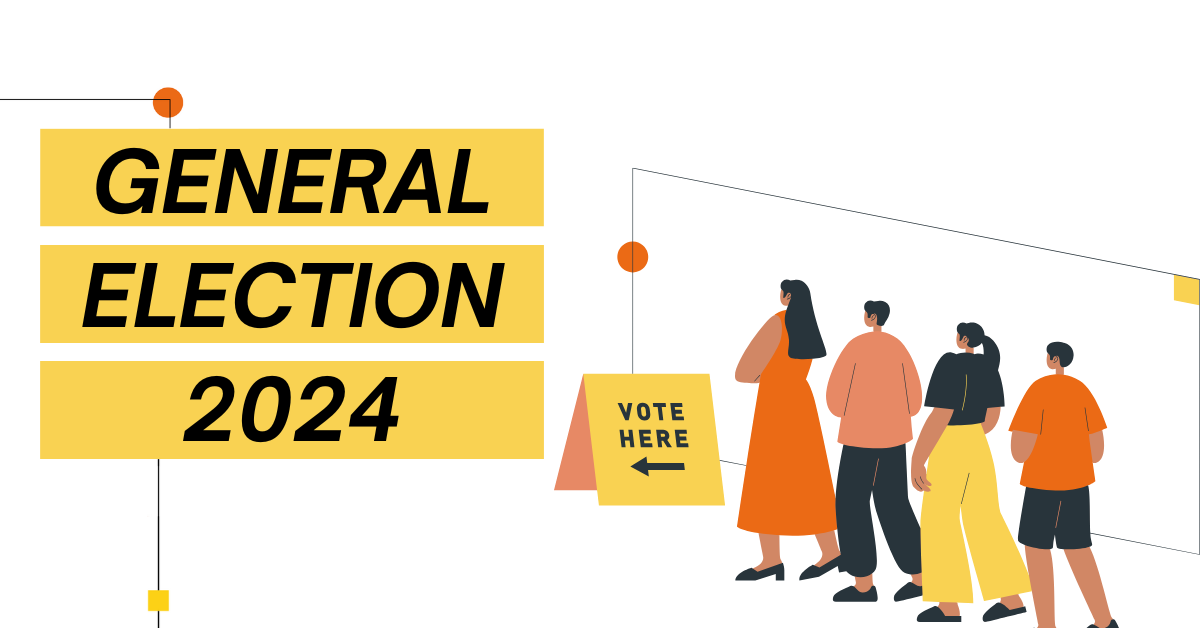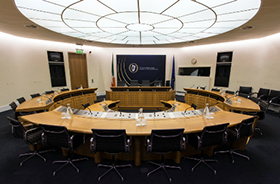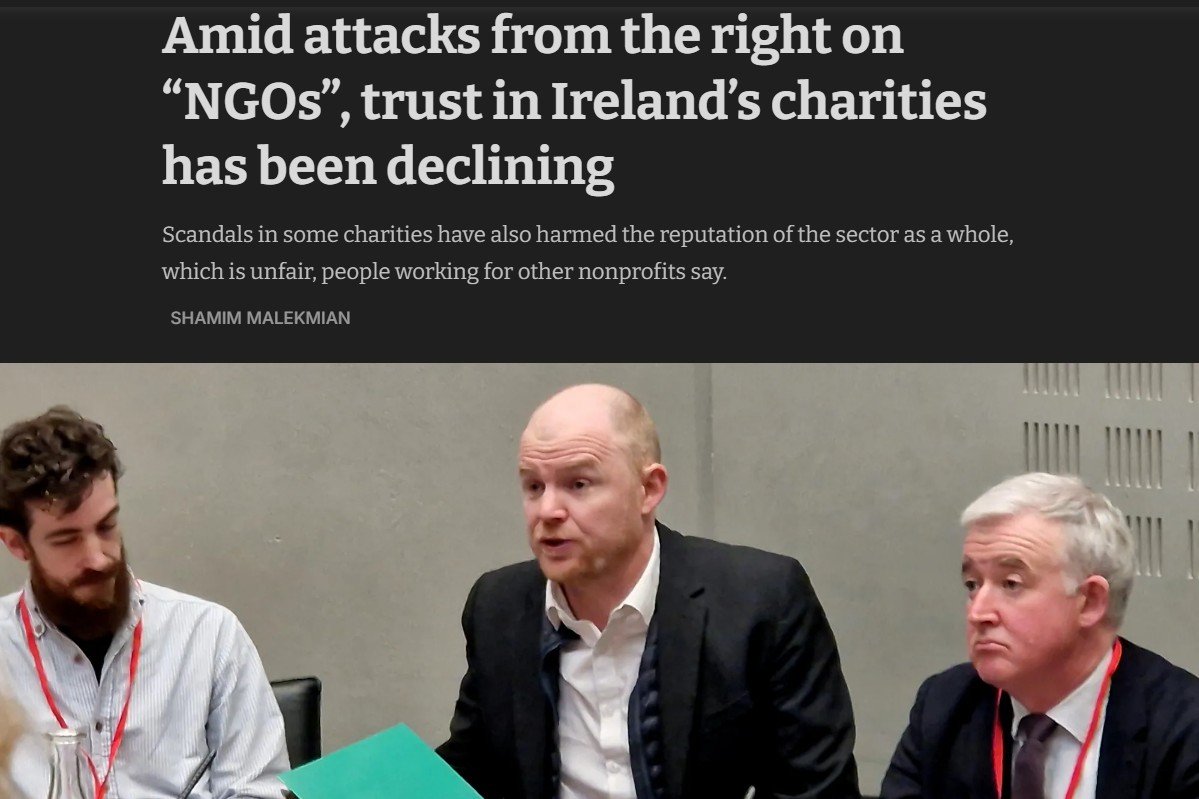Dr Shane Murphy examines the campaign dynamics of right-wing and anti-immigrant candidates.
In May of this year, in the run up to the local and European elections, the monthly Ipsos snapshot poll found immigration to be the number one issue on among 29% of the Irish public. The salience of immigration as an issue, and its pervasive coverage in the media, clearly worked to the advantage of anti-immigration candidates, many of whom had built their followings as organisers of anti-immigration demonstrations, or used these events to grow their audience by speaking at these events, or covering them on social media.
The most recent poll conducted earlier this month has immigration as the number one concern of just 8% of voters, behind housing, social policies, and budget/spending, and tied with education. The number of demonstrations has also declined significantly. While the run-up to the local elections saw numerous protests take place across the country (most notably in Newtownmountkennedy, which was estimated to have had over 2000 attendees at one point, and saw multiple incidence of protestors clashing with Gardai), these protests have largely died down, with the exception of some smaller protests which have recently taken place in Ballaghaderreen, and Athlone.
The (somewhat unexpected) decline of immigration’s salience in the general election, appears to have created a problem for candidates whose brand relies heavily on the issue, and for whom attending these demonstration provided a large volume of low-cost campaign material and earned media.
Another issue facing anti-immigrant candidates in the upcoming general election is that only Irish citizens are eligible to vote and run. As reported on by EDMO and FuJo back in June, anti-Immigrant sentiment created fertile ground for misinformation and conspiracies regarding non-Irish residents voting and running in local elections. One of the most prevalent examples was the narrative that migrants and refugees were illegally voting. Of course, Ireland’s electoral system allows for non-nationals to vote, and even run, in local elections, provided they are residents in the country – a legal status which applies to refugees and asylum seekers. Nevertheless, many notable figures who opposed immigration suggested that this was evidence of “Election interference”, “voter fraud”, and even “gerrymandering”. Similarly, aspersions were cast on politicians, Irish native and otherwise, who attempted to canvass for these votes, with suggestions that they would be unable to represent the interests of the Irish people, or that these voters could not be educated enough to make informed decisions on important issues.
These narratives were particularly prevalent among a number of self-described Citizen Journalists who unsuccessfully attempted to run for office at the time. Their campaigning became indistinguishable from their coverage of the elections, both of which were focused on attacking their non-Irish political opponents, and setting the groundwork for conspiracies about stolen elections in the event they lost. A number of these citizen journalist candidates are currently campaigning for seats in the upcoming general elections. Although opposition to immigration is still very much a part of their platforms, these campaigns have had to shift tactics somewhat in order to generate interest.
This is most evident in the campaign of Phillip Dwyer, who is currently running for one of the four seats available in the Wicklow constituency. Dwyer, who previously ran as a local election candidate in the Tallaght LEA, has centered his campaign around unseating Taoiseach Simon Harris and Health Minister Stephen Donnelly (the latter of whom is in very real threat of not being elected, although it’s unlikely Dwyer’s campaign is a significant factor). Dwyer’s campaign announcement video was shared on X alongside text stating “General Election announcement… I am running against Taoiseach Simon Harris Minister Stephen Donnelly. Please share far and wide”. In the video, he explains that this elections is a great opportunity to “expose” Simon Harris and Stephen Donnelly who he describes as “Tyrants”.
Despite what was promised at the outset of his campaign, Dwyer appears to be struggling to place himself in opposition to Harris. Attacks on the Taoiseach have largely comprised coverage of the Taoiseach’s well documented gaffes throughout the campaign, such as the revelations about John McGahon, or the Kanturk incident, alongside the caption “VOTE NO.1 PHILIP DWYER INDEPENDENT WICKLOW TO GET THEM OUT.” These videos have been widely shared across the internet over the last two weeks, but not as a result of Dwyer’s journalism.
This kind of “insurgent” campaign appears to be less compatible with his antagonistic style of citizen journalism. Whereas his anti-immigration coverage relied heavily on filming confrontations with mainstream members, private security guards and pro-refugee activists, much of his filmed output throughout the campaign to date has consisted of uncontroversial vox pops with members of the public, some of which largely consist of Dwyer reciting his own platform at length. Unsurprisingly, Dwyer’s most successful X post most successful X post of the campaign, with almost 170k views, is the one video in which he falls back into his familiar position of haranguing his political opponents – In this case, People Before Profit Candidate Kellie McConnell (who he incorrectly identifies as a Social Democrat candidate). The videos caption makes the sensationalist claim that McConnell’s canvassing team assaulted Dwyer, although it later emerged that Dwyer himself was being investigated for assaulting McConnells 66 year old father.
Suzanne Delaney of the Irish Inquiry has had an easier time integrating her style of journalism into this campaign. Like Dwyer, it is clear she has decided to center her campaign around unseating a high-profile government candidate – in this case, Green Party leader Roderic O’Gorman. Unlike Dwyer however, Delaney has an extensive back catalogue of footage of her antagonistically questioning O’Gorman, which she has been able to integrate in her campaign materials, including her campaign launch video, which begins with footage of Delaney accusing O’Gorman of “flooding the country with migrants”.
Roderic O’Gorman has been the subject of a number of conspiracy theories among Irelands far right, often relating to his Integration (alleging that he is involved in “The great replacement”) or his role as minister for children, suggesting he is responsible for a number of incidence where children have gone missing while in state care. The Irish Inquiry have been heavily involved in driving this misinformation for some time, and so Delaney has been able to integrate these narratives into her campaign with relative ease. Her campaign has also released footage purporting to show the government Minister putting up election posters before campaigning officially began, and floateda conspiracy that a €150 fine she received was retaliation from the government for reporting on this incident.
This focus on unseating unpopular or vulnerable incumbents is perhaps a clever tactic, given the global trend that has seen a number of sitting governments, including the UK, the US, France, Germany, Japan, South Korea, and India to name just a few, suffer electoral defeats in 2024. A more cynical take is that positioning yourself against high-profile opponents (e.g. switching to a constituency that is not your own in order to run against the Taoiseach) is an effective way to raise funds. Indeed, many of the posts post shared by Dwyer ends with a link to his GoFundMe page, which at the time of writing has raised about €1700 euro of its €5000 goal. Similarly, Delaney, alongside her Irish Inquiry partner Stephen Kerr, have raised just under €19,000 since the campaign began.
While Donnelly and O’Gorman’s seats are certainly vulnerable, it is unlikely that either of these campaigns will play a significant role in their ultimate fate. It is even less likely that either candidate will get elected. Nevertheless, they may stand to benefit. If nothing else, being vocally critical of unpopular incumbents, and putting yourself in a position to take credit should they fail to get re-elected, is one way to raise you’re profile (or at very least your funds) – something that will benefit these citizen journalists long after the election is finished




